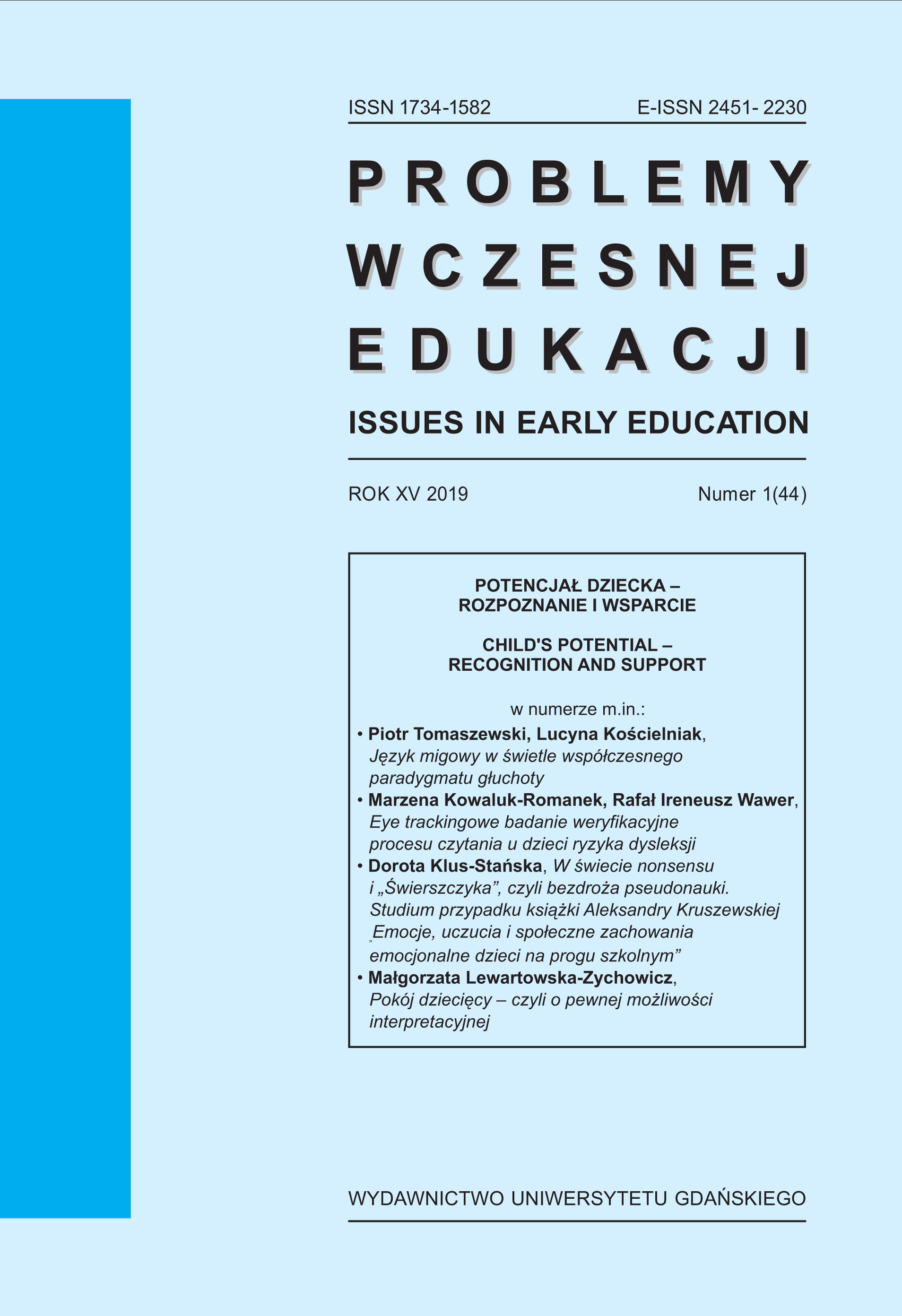Pokój dziecięcy – czyli o pewnej możliwości interpretacyjnej
DOI:
https://doi.org/10.26881/pwe.2019.44.04Słowa kluczowe:
pokój dziecięcy, przestrzeń, tożsamość, dyspozytyw (dispositif)Abstrakt
The aim of the text is to present the potential of Foucault’s concept of dispositive for interpreting the space of a child’s room. I look for arguments in favor of this proposal in the concepts of the place by M. Eliade, P. Ricoer, and Yi-Fu Tuan, who combine creating a place with the process of constructing human identity. In reference to them, I assume that a child can create his own identity only if he has a chance to transform the space available to him. The analysis of the history of children’s room shows, however, that his space has always been created as a result of adults’ practices aimed at educational goals. Thus, the children’s room can be treated as dispositif, serving the governmentality of child.

 Uniwersyteckie Czasopisma Naukowe
Uniwersyteckie Czasopisma Naukowe





